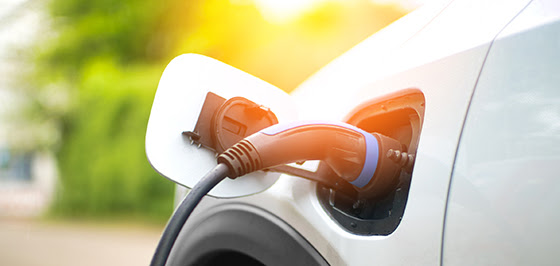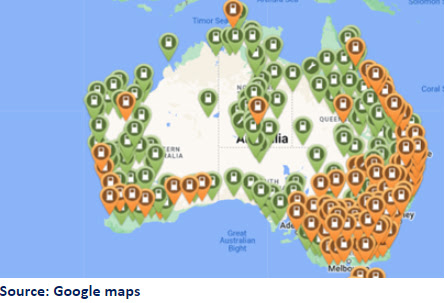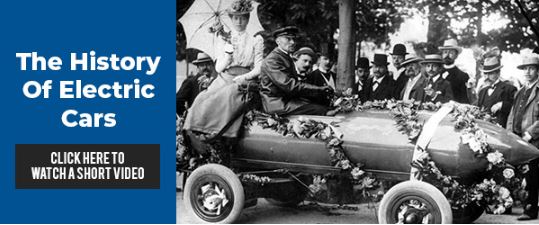Electric Cars – Are They Our Future?

With rising petrol costs and greater awareness of our ecological footprint, it is no wonder that Australia is seeing a dramatic upswing in the sale of electric cars. However before the pandemic, there was very little interest from Aussies in electric motoring.
In 2019 there were fewer than 10,000 electric vehicles (EVs) in the new car market of 10.62 million. Last year EV sales in Australia doubled, accounting for 2% of new car purchases1. It is also expected that as many as 10% of new cars in Australia will be electric by 20252.
There are always pros and cons to all decisions, especially when deciding on a new vehicle type.
Benefits of purchasing an EV
- Reduction of CO2 emissions
- Cheaper to own and run
- Require less maintenance
- Quick and fun to drive!
Barriers to purchasing an EV
- Can be more expensive to buy
- Public charging stations remain a challenge
- Charging can take time
- Driving range anxiety
The electric vehicle (or EV) landscape can be a confusing one for most.
A few considerations that owners need to navigate are:
- Understanding the various types of EVs
- Knowing the setup required to own and charge one
- Identifying the logistics and considerations required for taking longer trips
- How to finance your exciting new car
We have heard about them, but what are electric cars?
An electric vehicle (EV), battery electric vehicle (BEV) or all-electric car (type of EV), is an automobile that is propelled by one or more electric motors using only the energy stored in onboard rechargeable batteries.
The battery pack can be plugged in and charged from the electric grid and provides the only electricity source to propel the wheels.
Compared to internal combustion engine (ICE) vehicles, electric cars are quieter, have no exhaust emissions and produce lower emissions overall3.
Depending on the type of EV, the electric motor(s) either assist a conventional internal combustion engine (ICE) or power the car completely.
1. Understanding the types of electric vehicles
Hybrid electric vehicle (HEV)
- closed-loop hybrid
- currently the most common type of EV
- traditional internal combustion engine (ICE) combined with a battery and electric motor working separately or in tandem to reduce fuel consumption
- the battery is charged through driving so they never need to be plugged in
Common HEVs
Toyota RAV4 Hybrid
Lexus RX
Plug-in hybrid electric vehicle (PHEV)
- feature an internal combustion engine (like HEVs) that work in tandem with an electric motor
- has a bigger battery
- can be driven anywhere from 40 to 60km on electric power alone before the ICE kicks in
- need to be plugged in to recharge the battery
Popular models
Mercedes-Benz GLC300e Plug-In Hybrid
MG HS Plus EV
Battery electric vehicle (BEV)
- fully electric
- large battery array powering either one or two electric motors
- driving ranges of anywhere between 300 to 500km
- charging: home or public charging stations
Popular BDEVs
Polestar 2
Tesla Model 3
Porsche Taycan
Fuel cell electric vehicles (FCEV)
- fuel-cell electric vehicles (like BEVs)
- powered purely by electricity
- generate zero CO2 emissions
- generate their own power supply by burning hydrogen (stored in a tank similar to a car’s fuel tank)
- no recharging required
- hydrogen is pumped into the FCEV’s fuel tank much like petrol or diesel is into a conventional ICE car
Not currently widely available, although the Toyota Mirai and Hyundai Nexo are both part of ongoing trials in Australia.
2. Knowing the set up required to own and charge EVs
There are three main varieties of charging options EV owners need to know about.
Wall sockets
You know, the one you plug your lamp into. These take far longer to charge your car.
Charging time: 18-24 hours
Wall boxes
These are typically what you would find inside a private garage or a shopping centre car park and are best used to top up your car’s battery.
Charging time: 4 hours
Fast chargers
Typically found at public charging stations, fast chargers resemble petrol bowsers and provide a much faster rate of charge.
Charging time: 40 minutes
Finding public charging stations
There are a number of websites and apps you can download to let you know where your closest charging station is. Most EVs even have this built into their navigation system.
And for those without off-street parking… Did you know?
An electric car infrastructure trial in New South Wales is aiming to provide access to chargers for electric vehicle owners without off-street parking. The Federal Government is tipping more than $850,000 into a $2 million infrastructure trial in New South Wales for 50 electric car chargers to be installed on power poles within the state.

3. Identifying the logistics and considerations required for taking longer trips
Many prospective EV owners are often plagued by ‘range anxiety’, having concerns on how far an EV can go compared to petrol vehicles. For most city dwellers with an average commute of 30 kms, they should not be concerned. With newer electric models (but not all) having a driving range as great as 400-600 km, this is typically more than enough for most day travellers.
If you get stuck?
Most motoring clubs now offer a service where they can give you enough charge to get you home or tow you to the closest charging station.
Google maps are a great resource to find your closest station.

And finally…
4. How can you finance your exciting new car?
We recently documented the range of Your Vehicle Funding Options. Feel free to read it again.
The most important aspect of choosing your finance option is to talk to us first.
We can help you make an informed decision on your finance structure and provide a pre-approval before you go EV shopping.
With electric cars becoming more affordable (hybrids starting around $33,500 and EVs from around $45,000), they can be a great option for those who are cost and ecologically conscious.
Before you go…
Did you know that electric cars were around in the earliest days of motoring?
Read our article by clicking below on the History of Electric Cars.
Happy motoring…
Regards,
Rukmal (Rocky) Wijesooriya

Note:
Our experience and professional services are governed by high standards inclusive of privacy provisions together with a well-established complaints process. We are governed and registered by ASIC, AFCA and FBAA for your protection of dealing with us.
Sources:
Remember we are here for all your vehicle finance needs.
Contact us for a pre-approval today.
02 9499 5697
Intelligent Accounts and Finance
45A Spencer Road
Killara NSW 2071
02 9499 5697
0423547547
rukmal@
intelligentaccountsandfinance.
Australian Credit Licence: : 412778
Credit Representative Number: : 534206
ACN : 148919715
Disclaimer: This article provides general information only and has been prepared without taking into account your objectives, financial situation or needs. We recommend that you consider whether it is appropriate for your circumstances. Your full financial situation will need to be reviewed prior to acceptance of any offer or product. It does not constitute legal, tax or financial advice and you should always seek professional advice in relation to your individual circumstances.




